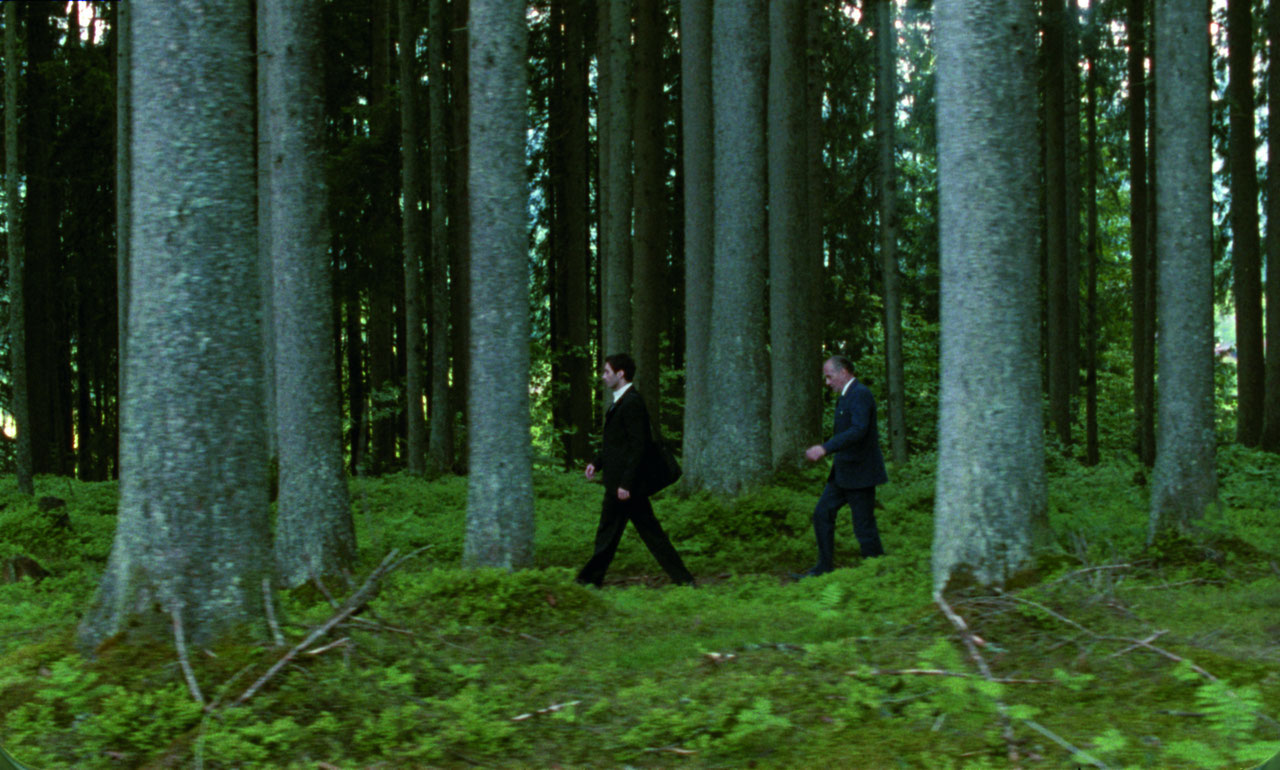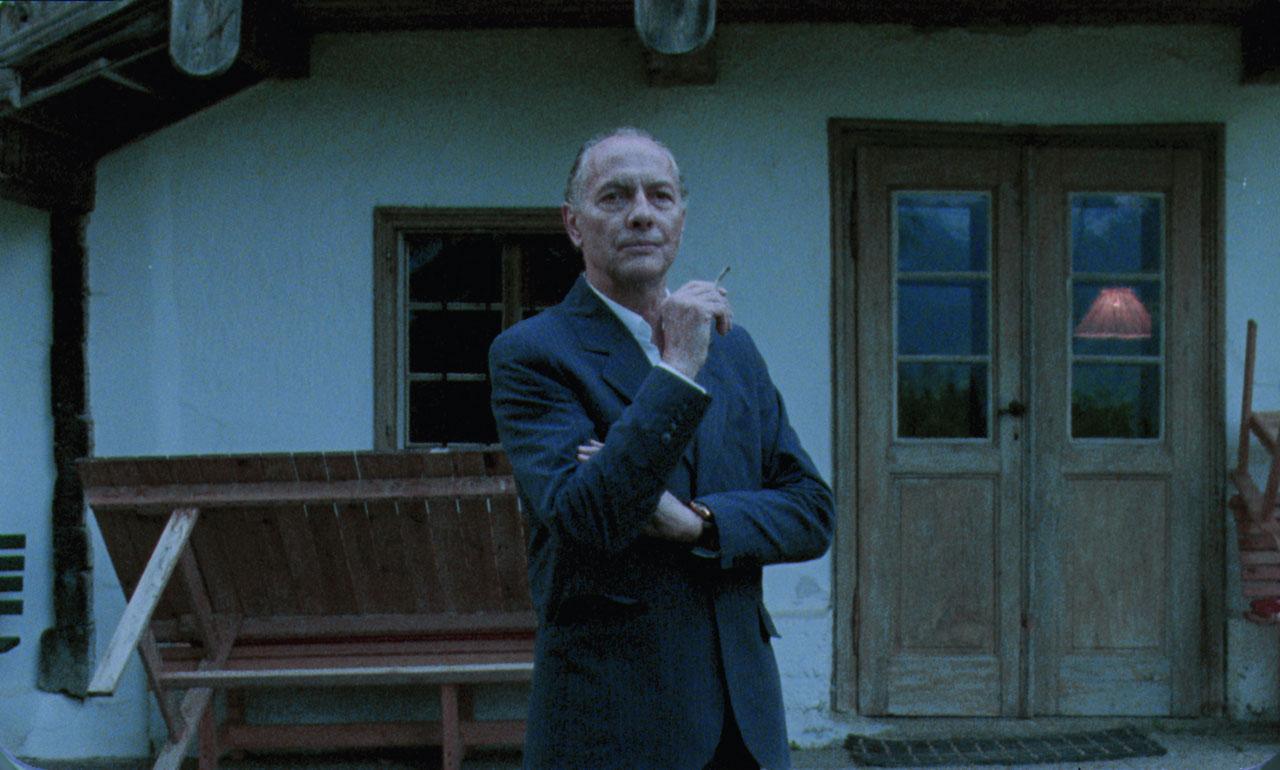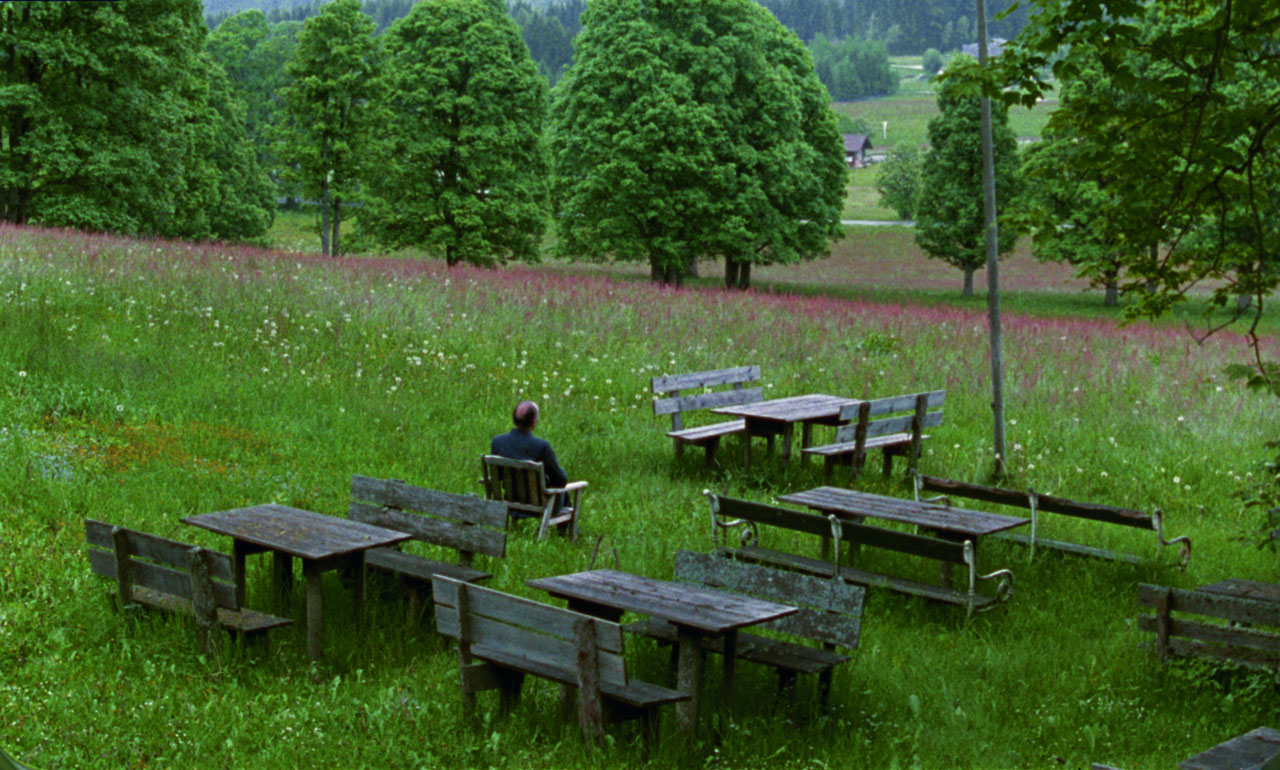Home
The two French businessmen look especially out of place in the lush green of the Styrian forest. But that is simply consistent, as Patric Chiha´s short fiction film Home tells of what it is like to be in the wrong place, in more ways than one. On the one hand, Fouad and his younger colleague have simply gotten lost on their way to the firm "Lodenwalker". The streets they take, and the forest paths they embark upon seem to take them one step further from where they want to go.
Yet beyond that, Home devises a second, more dissipated story that leads into the reels of memory. For Fouad, the business trip also becomes a return to the country of his childhood. The pictures of the surroundings evoke memories. In a monologue, he addresses them to an imaginary listener, or perhaps simply to himself. We learn about his mother who left Austria at the end of World War II and searched for happiness as a dancer in Beirut - and already, the movements of the waitress in the pub also seem to follow a certain choreography. Yet the mother´s comparatively glamorous story, shown in Super-8 clips that shift into the picture, corresponds in only a negative way with the natural setting. Through Fouad´s stories, the rustic idyll appears as a place that has resisted all forms of change. A place where time stands still, where the horrors of the past have accumulated and are even reflected in recent acts. "Nothing has changed," says Fouad, "but I don´t recognize anything." In this sense, Home describes an impossible return home - and arouses the uncanniness of an area that remains too similar to itself.
(Dominik Kamalzadeh)
Translation : Lisa Rosenblatt
click here to watch trailer!
click here to order a dvd at docuzone.at.
Home / texte français
Mais au-delà, Home tisse un autre récit, plus riche en péripéties, qui conduit à lintérieur des rouages de la mémoire. Pour Fouad, ce voyage professionnel se transforme bientôt en pèlerinage au pays de son enfance. Les vues des environs réveillent des souvenirs quil commente dans des monologues adressés à une audience imaginaire, ou peut-être seulement à lui-même. On apprend que sa mère a quitté lAutriche à la fin de la Seconde Guerre mondiale pour aller tenter sa chance à Beyrouth comme danseuse et aussitôt, les mouvements dune serveuse de restaurant semblent obéir à une chorégraphie précise. Mais à lhistoire relativement mondaine de la mère, dont des fragments apparaissent à l'image par le biais de films super 8, le décor naturel ne correspond que sur le mode négatif. Dans la narration de Fouad, léden rural se présente comme un lieu qui a résisté à toute forme dévolution. Un lieu où le temps sest arrêté, où les atrocités du passé se sont incrustées et même se manifestent à travers des actes récents. « Rien nŽa change », dit Fouad, « et pourtant je ne reconnais rien. » En ce sens, Home décrit un retour impossible et souligne linquiétante étrangeté dune contrée qui reste trop semblable à elle-même (Dominik Kamalzadeh)
Traduction: Françoise Guiguet
Isabelle Régnier / LE MONDE (Critique)
Isabelle Régnier / LE MONDE about home by Patric Chiha
Home
2006
France, Austria
50 min



